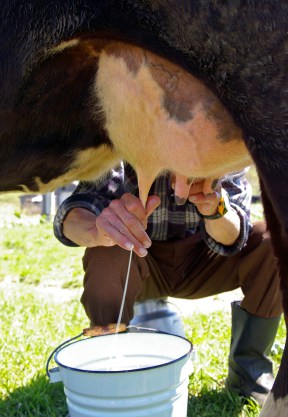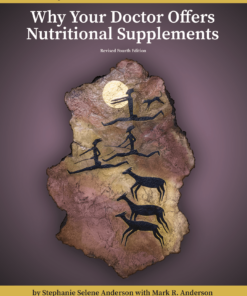“I’m lactose intolerant, but I have no problem drinking goat milk,” my friend Lauren lamented recently. Lactose intolerance is yet another demon that haunts us these days, so you’re probably hearing your friends and family dealing with it. Let’s look a little closer: Lactose is a simple milk sugar. The lactose in goat milk is indistinguishable from any other mammalian milk. If Lauren can drink goat milk without a reaction, why can’t she drink cow’s milk? Maybe it’s not the lactose.
In fact, there are many reasons why pasteurized milk is intolerable to many people due to the endless tampering it undergoes. The beneficial enzymes, probiotics, vitamins, and proteins in raw milk are destroyed by pasteurization. If you experience symptoms from drinking pasteurized milk, you’re normal. The body is reacting to the denatured protein and telling you to stop drinking food that has been altered from its intended state. Along with pasteurization, the addition of synthetic vitamins and the process of man-made homogenization all play havoc with the body’s ability to digest milk.
To digest lactose requires the lactase enzyme. There are some people whose bodies do not produce the lactase enzyme. For example, small populations in the Caribbean who have never had cattle and have never drunk animal milk do not produce the lactase enzyme because of genetics. For a good discussion about who is and who is not lactose intolerant, read The Untold Story of Milk. Although this is a good book, unfortunately, the author makes the mistake of claiming that milk contains the lactase enzyme. The fact is, the probiotic bacteria in milk only serve to assist our gut in the production of lactase. They don’t make lactase in the milk. In fact, the human is the only animal that makes lactase. For a nice description of how natural milk bacteria (probiotics) help the body make lactase, read the the conclusion at the end of this article.
Milk is a growth food and contains the highest levels of lactose of all forms of milk products. The fermentation process and cheese process transform the lactose into lactic acid. This translates into less carbohydrate consumption, another advantage to eating fermented milk products.
Because our intestinal health has suffered, sometimes even genetically, from being raised on pasteurized/homogenized milk, even drinking raw milk can cause a reaction. Fortunately, bringing the digestive system back to health will change that. Lactic acid is key to the health of the intestines. Indigenous people traditionally fermented their milk products, increasing the presence of lactic acid. Start getting lactic acid into your diet with this great DVD by Maria Atwood, Cook Your Way to Wellness. Maria teaches how to ferment vegetables, milk, grains, and legumes.
My favorite fermented milk is buttermilk made from raw milk. And remember, Lauren is not lactose intolerant. She does have the lactase enzyme or she would not have been able to digest goat milk. Now we have to work on her lactic acid.
Photo from iStock/Zvozdochka




